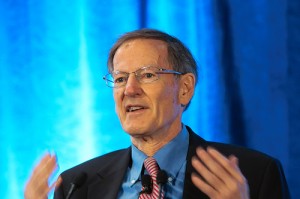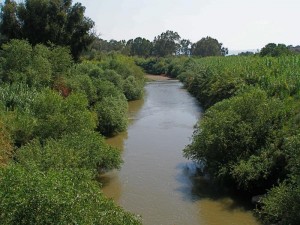


Without Dirty Mining, You Can’t Make Clean Cars
Join us for the 6th Annual Chapman Center Luncheon!
Meet the 2019 Class of Chapman Fellows!
We are pleased to announce our 2019 Chapman Fellows: Savannah Bice – Finance Rotational Analyst, Microsoft (finance rotation program); extensive world travel; BS, Economics and Finance, Lindenwood University (active in DECA), St. Louis Jon Cantalini – Interim Executive Director, King County Republican Party; field coordinator, Dino Rossi for Congress, 2016; BA, Seattle University; former intern for Republican Attorneys General Association Jessie Gamble – Government Affairs Director, Master Builders Association of Pierce County; former president, UW College Republicans; Republican PCO in Carbonado Ryan Jewell – Brokerage Manager, Guardian Life; former insurance district sales manager; SPU alumnus (business and marketing major); interested in running for office in the future Jake Mayson – Legislative Assistant, Carney Badley Spellman LLC lobbying; former legislative assistant Read More ›
Continue to Watch Venezuela
It is hard to know whether the current US Administration would really like to see the Maduro government in Venezuela fail. With the acknowledgment of an inflation rate of 64 percent and with supermarkets frequently looted for scarce food, and the beer workers on strike (beer is the drink of choice in Venezuela and much of Latin America), the government is letting off steam by calling a parliamentary election for December 6. One would like to think the the Obama Administration would be rooting for change. Maybe it does, but the evidence is not obvious.
Does an election in a few months offer hope for the masses who are suffering? Or does the Cuba-dominated regime have plans to rig the election? By now, it is probable that even the Chavista base of poor people are turning against the regime. After all, without high oil prices, Venezuela has little to sell and socialism doesn’t work domestically. For the elites, there is little left to steal. Read More ›
Washington StateTuition Cut Success Should be Emulated Nationally
Washington State Republicans control only one house of the state legislature — the Senate. Yet this year they used skillful politics and diplomacy to get a new state budget that does not raise major taxes (a separate budget does raise the gas tax to pay for roads and bridges). It lives within the revenues of the current economy — and it cuts tuition for debt-burdened college students by some 20 percent. That is a milestone in education reform nationally and a tremendous boost for young people. Read More ›
Put Your Head Back on Right this July 4
It is easy to get distracted by all the forebodings in the news today, so I want to offer Discovery Institute friends a “read” that will re-inspire you and also assert some of the personality and philosophy that I hope animates this organization and its fellows. It should encourage a different version of Independence Day enthusiasm as it is quintessentially American.
My Uncle Berlin B. Chapman was raised literally a hundred years ago in the hills of West Virginia, put himself through college and Harvard Graduate School (Phd.), and taught history the rest of his life in Oklahoma–producing some of that region’s first histories. He once told me that in his opinion “the greatest commencement address” ever made was “Acres of Diamonds,” by Baptist preacher and Temple University President Russell Conwell. I asked Uncle Berlin for the gist of it–that the opportunities in life are found in one’s own backyard–and was more or less satisfied with that truism. But I finally got around to reading a version of the address itself today because I wanted to recommend it to a young political friend of mine. Read More ›
Why “Gold in the 21st Century”?
 Discovery Sr. Fellow George F. Gilder delivered his monograph, Gold in the 21st Century, today at the Princeton Club in New York City. The book length paper was the product of the American Principles Project and represents a next step in George’s thinking on the issue of money as it changes in our time. His next book, Life After Google (working title), will incorporate his insights on gold into a discourse on fulfilling the Internet’s promise–and resolving its ailments.
Discovery Sr. Fellow George F. Gilder delivered his monograph, Gold in the 21st Century, today at the Princeton Club in New York City. The book length paper was the product of the American Principles Project and represents a next step in George’s thinking on the issue of money as it changes in our time. His next book, Life After Google (working title), will incorporate his insights on gold into a discourse on fulfilling the Internet’s promise–and resolving its ailments.
Among the topics I hope he covers in the future are what we can do about the maddening array of pop-up ads and 30 second commercials that get in the way of enjoying a particular YouTube video or newspaper article. He also needs to address the appalling spams and scams of Internet and email gangsters that prey on the gullible. The gullible also include many of us who thought we were opening a legitimate news article and found instead that our computers had been taken over by “ransom ware” or malware and that the only way to get free was to pay off the pirates (or spend an afternoon, as I have done recently, at an Apple store getting the computer de-loused).
The answer probably is some variation of Bitcoin, the monetarization of material we now obtain only after punishing advertising assaults. What will you pay to be free of these? Is the future Internet not like a toll-road that one takes to avoid the congestion and eye-attacks of billboards and blight? If so, there probably will be a way for free-loaders to continue to get content for nothing more than a stream of ads and risks to one’s serenity. Read More ›
Dark Reading: The NY Times Promos Suicide
To read the Sunday New York Times is to descend into a Dantean darkness and implied despair. Abandon hope all ye who open these pages (physically, also, the dirtiest read in printing). Here is where you learned to rationalize women killing babies immediately after birth (per Stephen Pinker) and now it is building almost a humane expectation of suicide for people with Alzheimers. Wesley Smith takes up the topic today.
Jordan River No Longer “Deep and Wide”, but It Could Be Again
 The Jordan River is important to Christians as the place Jesus was baptized, and for other reasons it is cherished by Jews and Muslims. To the people of the Middle East–notably Israel, the West Bank and Jordan, it is a crucial economic resource. Unfortunately,by the time the Jordan’s water is sucked out for agriculture and other needs the natural flow has been reduced 96 percent. It’s a creek at the end, and totally polluted.
The Jordan River is important to Christians as the place Jesus was baptized, and for other reasons it is cherished by Jews and Muslims. To the people of the Middle East–notably Israel, the West Bank and Jordan, it is a crucial economic resource. Unfortunately,by the time the Jordan’s water is sucked out for agriculture and other needs the natural flow has been reduced 96 percent. It’s a creek at the end, and totally polluted.
Now, according to Citiscope (the product of veteran journalist Neal Peirce and his associates), an environmental association is attempting to organize international assistance to revive the river. Mayors from 114 North American cities have joined in a common pursuit to help raise donor money for the effort. Read More ›
